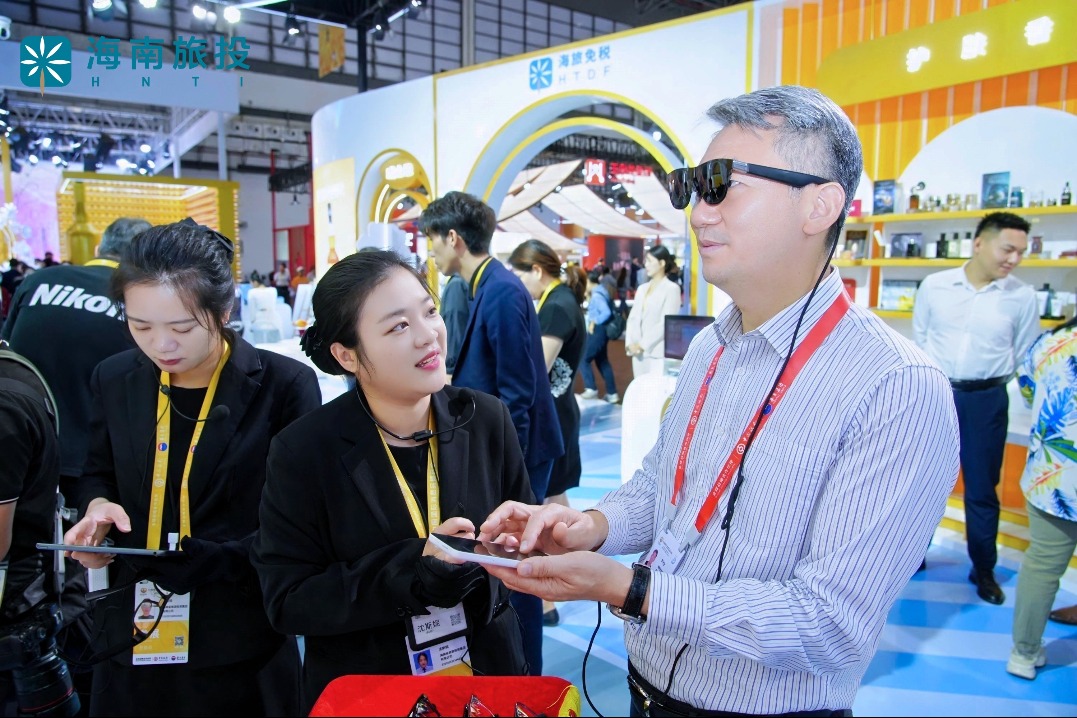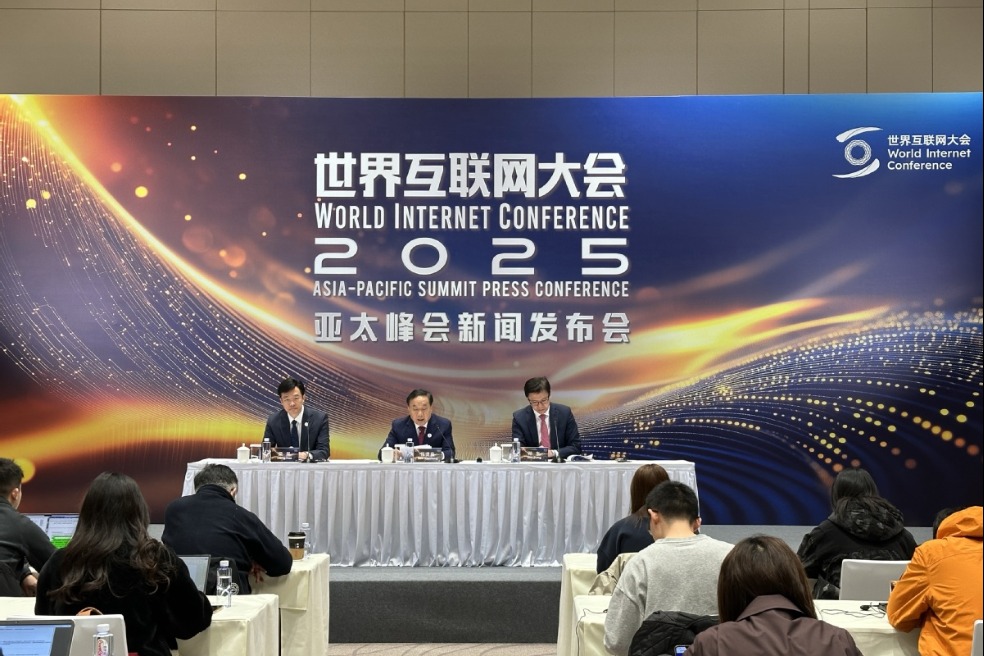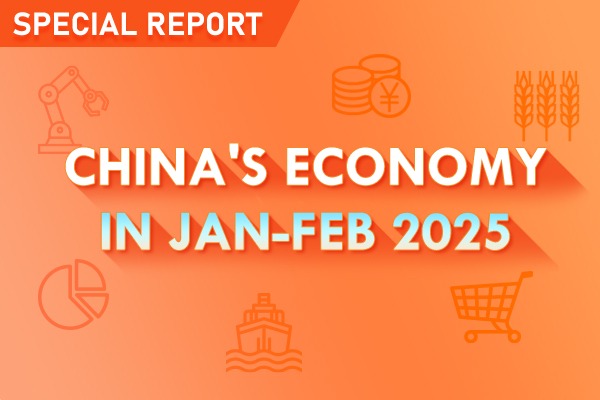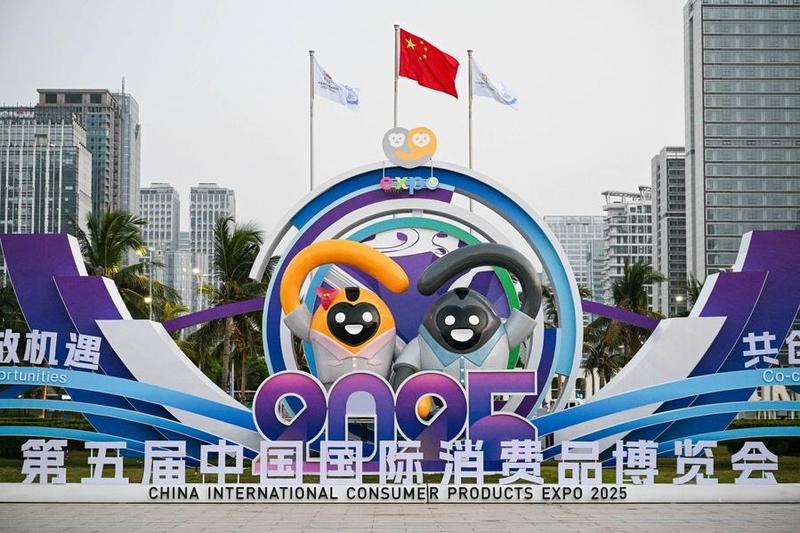Food MNCs sharpen health focus as COVID-era consumers turn smarter


Multinational corporations are intensifying efforts to serve China with more healthy and nutritious foods as consumers increasingly desire to "stay pretty and healthy", said industry experts.
Consumers aged between 20 and 45 pursue high-quality products, including health foods, and they form the backbone of China's consumption upgrade. This group is willing to pay a premium for branded, top-quality, user-centric products, they said.
Jiang Nanchun, founder and chairman of Focus Media, a Chinese offline advertising solutions provider, said at a recent forum that China's rising middle-income group appears to be afraid of getting old, and are keen to stay youthful, fit and good-looking for extended periods of time.
"What they pursue and what they fear offer us a hint about relevant business strategies to be adopted," Jiang said.
During the third China International Import Expo held in early November in Shanghai, MNCs in the food sector placed increased emphasis on "being healthy".
Their strategy showed that the CIIE has evolved into a platform for international procurements and investment promotion.
For instance, products of New Zealand's dairy giant Fonterra highlighted health and immunity, including probiotic milk powder for adults, ultra-heat-treated low-fat milk for people who want to be more fit, and a new version of milk powder with more nutrition for new mothers.
Woody Guo, senior vice-president of Herbalife Nutrition and president of the company's China unit, said that due to the impact of the COVID-19 pandemic on society, more and more consumers are aware of personal nutrition and health.
To target their rising demand for health foods, Fonterra will introduce more products. It will also enhance its research and development in order to offer consumers personal nutritional supplement plans.
For its part, Nestle ramped up efforts in R&D to bring more, and better, nutrition and health solutions to Chinese consumers.
Rashid Qureshi, chairman and CEO of Nestle Greater China, said, "At Nestle, we constantly explore and aim to push the boundaries of what is possible with foods, beverages, and nutritional health solutions to enhance quality of life and contribute to a healthier future."
Jin Yesi, a fitness analyst who formerly worked at Shenzhen, Guangdong-based fitness studio Supermonkey, said, "With the launch of 'Healthy China 2030' (national campaign) and people's rising healthcare awareness, people are eating cleaner and healthier."
She said the epidemic this year specifically had an influence over the younger generation among consumers, who are sensitive to fears that any virus infection could be potentially life-threatening. "They therefore have an increasing demand for health foods."
The 2018 China annual imported food report published by the China Chamber of Commerce of I/E of Foodstuffs, Native Produce and Animal By-products showed that between 1997 and 2017, China's compound annual growth rate of imported foods reached 14.6 percent.
In 2017, China imported foods from 170 countries. For the first time, the total value of imported foods surpassed $60 billion, making China the largest consuming country in imported foods, the report said.
Market insiders said that the country's opening-up policies and trade facilitation measures have helped make imported foods an integral part of people's daily life.
Data from the General Administration of Customs showed that in 2019, China's import volume of olive oil surged by 35.64 percent on a yearly basis to nearly 54,000 metric tons, and the import value rose 2.23 percent year-on-year to $180 million, demonstrating people's pursuit of healthier foods.
Wu Cuiyi, a 30-year-old primary school teacher in Beijing, said: "Since three years ago, my family and I started to buy healthy foods imported from around the world, including almonds from the United States, milk and cheese from New Zealand and fresh salmon from Japan. Such foods, I think, are usually the exporting country's specialty, and this guarantees top quality."
Jin the fitness analyst said: "In the post-pandemic era, eating healthy is an inevitable trend. However, in order to make food healthier, some enterprises may sacrifice wonderful taste for cleanliness and healthy. How to balance taste and healthiness is a question that enterprises need to think about in the future."




































